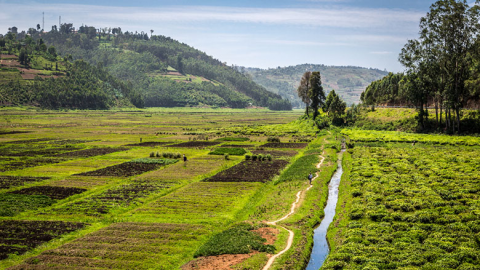
To ensure a bright future for the Rwanda Real Estate Sector by providing friendly guidelines on land use and allocation, a cabinet meeting held on Monday, October 12, 2020 approved the draft law governing land in Rwanda, which is said from its consistency, will stop the confusion and boost real estate buyers and investors.
Here are the highlights of the draft new (Oct, 2020) land law in Rwanda:
Subdivision of land will be permitted, whereby in the current land law enacted in 2013, the share of agricultural, livestock and forest land was prohibited if the result of such a subdivision led to plots of less than one hectare for each of them. By permitting this, it is expected that it will help citizens, especially farmers, to reduce informal land transactions and reduce land conflicts arising from shared ownership of land.
Full land ownership (Freehold) was only granted to nationals on a five-hectare plot and to foreigners whose owned property is located in the designated special economic zone, on a reciprocal basis and in joint ownership of land (if at least 51% of its participation is owned by Rwandan citizens).
However, In the new draft law;
- For nationals, the size eligible for full ownership has been reduced to 2 hectares per person for efficient and rational use of land.
- For foreigners, the freehold concession will be approved by a presidential ordinance for exceptional circumstances of strategic national interest.
Regarding the emphyteutic lease of residential and commercial zone granted to citizens and foreigners who acquire land by private means, the duration of the lease will not be increased by more than 99 years compared to the current 20 and 30 years, respectively.
And, instead of having different public entities owning lands of the government, all State land will be registered to the Government of Rwanda through the Ministry of Environment which is in charge of land. All other centralized public institutions and decentralized entities will be users of the State land accordingly. In the meantime, a decree from the Prime Minister will determine the modalities of use and transfer between government institutions.
Additionally,
- Strategic investments on public land by the private sector such as buildings for commercial use will be granted a specific long-term lease for investment, different from the lease granted to citizens.
- It will give investors specific rights to the land, including the right to mortgage the land and the activities developed on that land during the term of the lease.
- However, this will be in accordance with the relevant laws and the agreement signed with the Government of Rwanda.
For other strategic investments such as forestry, the private sector will be granted a concession title of up to 49 years, which will give investors specific rights to mortgage the concession rights corresponding to the duration of the concession.
To solve the problem of the high number of court cases related to prescription or limitation of land. the new draft land law deliberates the power to apply the prescription on the basis of the reports of the land committee. Whereby the current land law enacted in 2013 was based on the civil code provisions to apply prescription on land and is ascertained by a decision of a competent court.
Regarding sanctions, the draft new land law requires compliance with land use plans to support economic growth through appropriate urbanization and settlement development. It provides that any permit granted in contradiction with the land use plan and the required standards will be null and void and has no effect whatever the type of prescription.
Read similar article on The New Times
-----
For daily real estate updates!
